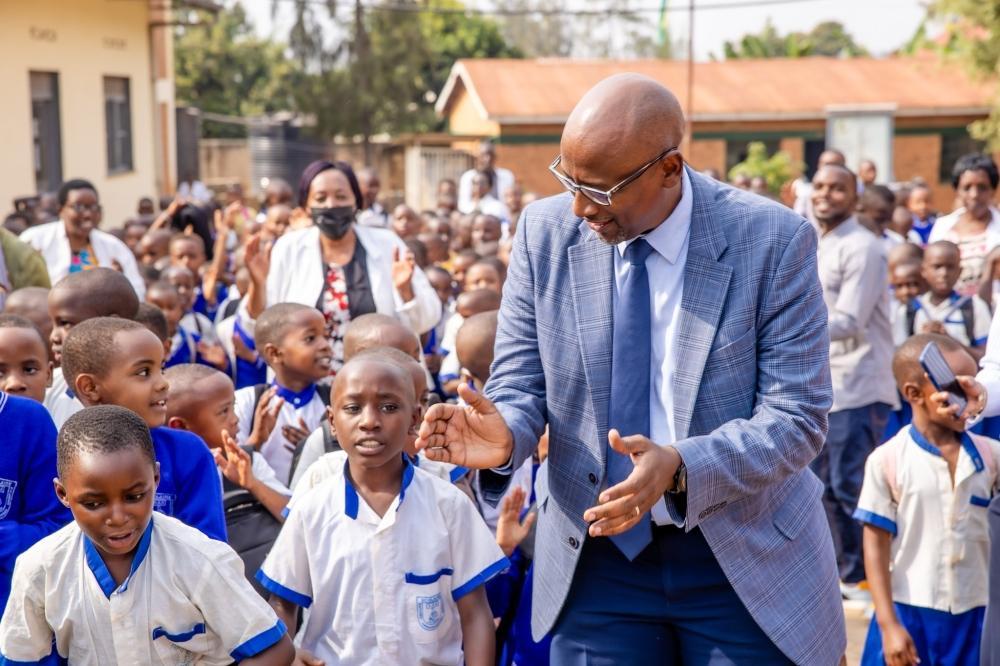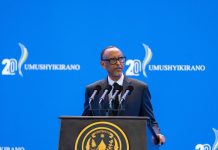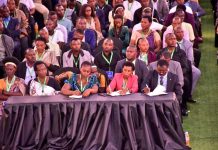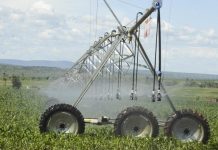Africa-Press – Rwanda. Parents and guardians have been urged to take up a more active role in their children’s education, as performance and quality learning require collective effort.
Education minister Joseph Nsengimana made the observation on Monday, September 8, at GS Kicukiro in the capital of Kigali as the 2025/2026 academic year got underway countrywide. The new academic year heralds a raft of new education reforms, which include key changes to timetables for primary schools and curriculum for upper secondary education, which saw multiple subject combinations replaced with three learning pathways.
Speaking at the launch of the new academic year, Nsengimana emphasised that the responsibility of educating children cannot rest on schools alone.
“Schools are ready to teach, but they cannot do everything,” he said. “Parents must follow up on their children’s performance, support them where necessary, and respond to what schools ask. It is a collective effort.”
He addressed students at the school and, by extension across the country, urging them to stay focused, especially those who struggled in previous years.
Today marks the official start of the 2025/2026 Academic Year!
“For those who did not succeed, this is not the end. It is an opportunity to learn, improve, and do better,” Nsengimana encouraged.
Martine Urujeni, the vice Mayor in charge of Socio-Economic Affairs at the City of Kigali, raised concerns over the persistent challenge of parents failing to pay their contributions for feeding in public schools.
“We have conducted awareness campaigns to get parents to pay their share of school feeding, and to do so early,” she said. “But this remains a problem we are committed to addressing.”
As schools reopened, students expressed their determination to achieve better results this year.
“During the holiday season, we took the time to rest, help our parents with home chores, and to review lessons so that we don’t forget everything we studied,” said Jesca Nshimiyimana, a Senior Five student.
For Fabrice Ibyishaka, a Senior Six candidate, this school year will be decisive as he prepares for the national exams.
“We looked at what our older siblings did to succeed, and it gives us strength to do the same or even better. I have new strategies to improve my performance,” he said.
A turning point in education reforms
The new academic year marks the beginning of the implementation of the education reforms approved by the Cabinet in June. The reforms are designed to boost learning outcomes and align the education system with the country’s long-term development ambitions, officials say.
One of the most pressing challenges has been the high repetition rate in lower primary education, with statistics showing that about 35 per cent of Primary One students repeat the year, often due to overcrowded classrooms. The double-shift system also leaves many schools unable to complete the curriculum, initially designed for single-shift teaching, it emerged.
To address this, the government has introduced a new timetable requiring all schools to adopt a five-lesson-per-day model (25 lessons per week), in line with international benchmarks. This adjustment is expected to allow for teachers to cover the curriculum more effectively while allowing students enough time to absorb foundational skills.
“These reforms are not just about logistics,” Nsengimana said. “We asked ourselves: what should a child know by the end of Primary Three? Literacy in English and Kinyarwanda, numeracy, science, and ICT are the building blocks for all future learning.”
He likened early education to the construction of a house: “If the foundation is weak, everything built on top is at risk. That’s why we are treating preschool to Primary Three as a critical investment period.”
At the secondary level, reforms will replace the old subject combinations with three broad pathways: Mathematics and Sciences, Arts and Humanities, and Languages.
All students, regardless of their chosen pathway, will continue studying a set of core subjects, including Mathematics, English, ICT, Entrepreneurship, Physical Education, and General Studies. The change is intended to prevent early specialisation and ensure that students retain multiple career options.
The reforms will be rolled out in phases, starting this academic year, first with Senior Four, and gradually extend to Senior Five and Senior Six in subsequent years.
For More News And Analysis About Rwanda Follow Africa-Press






